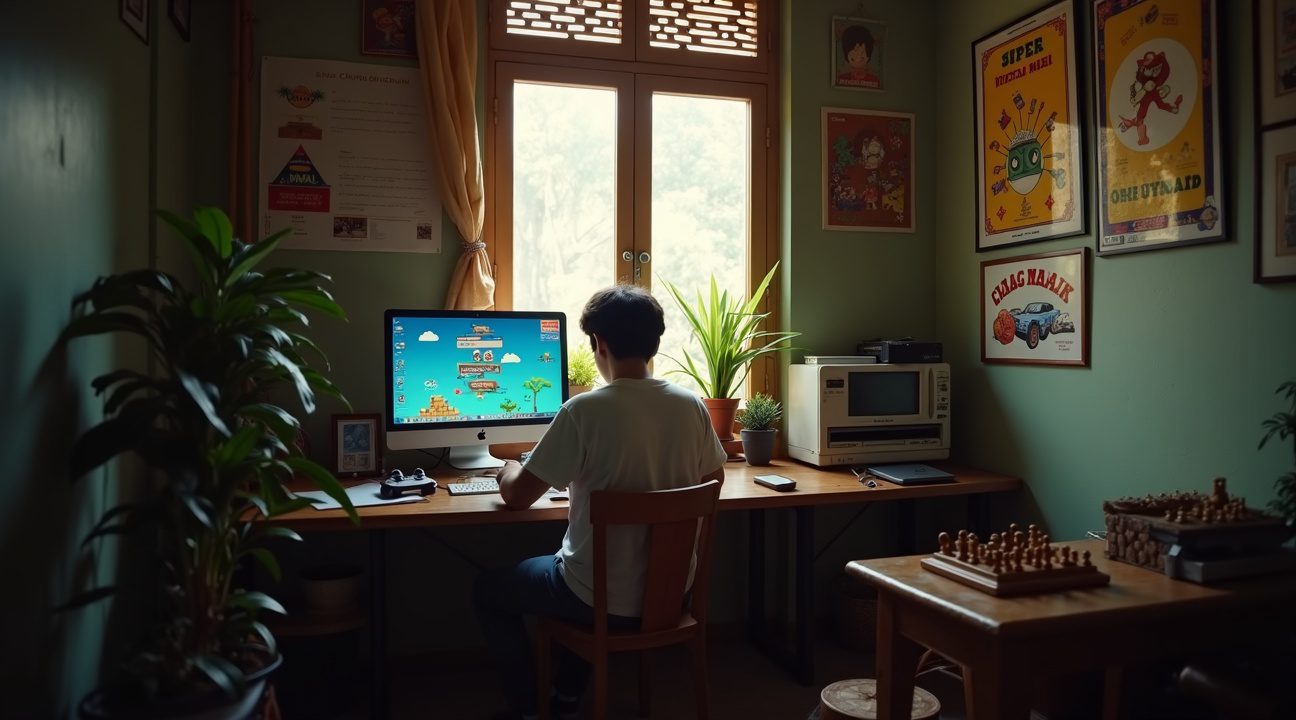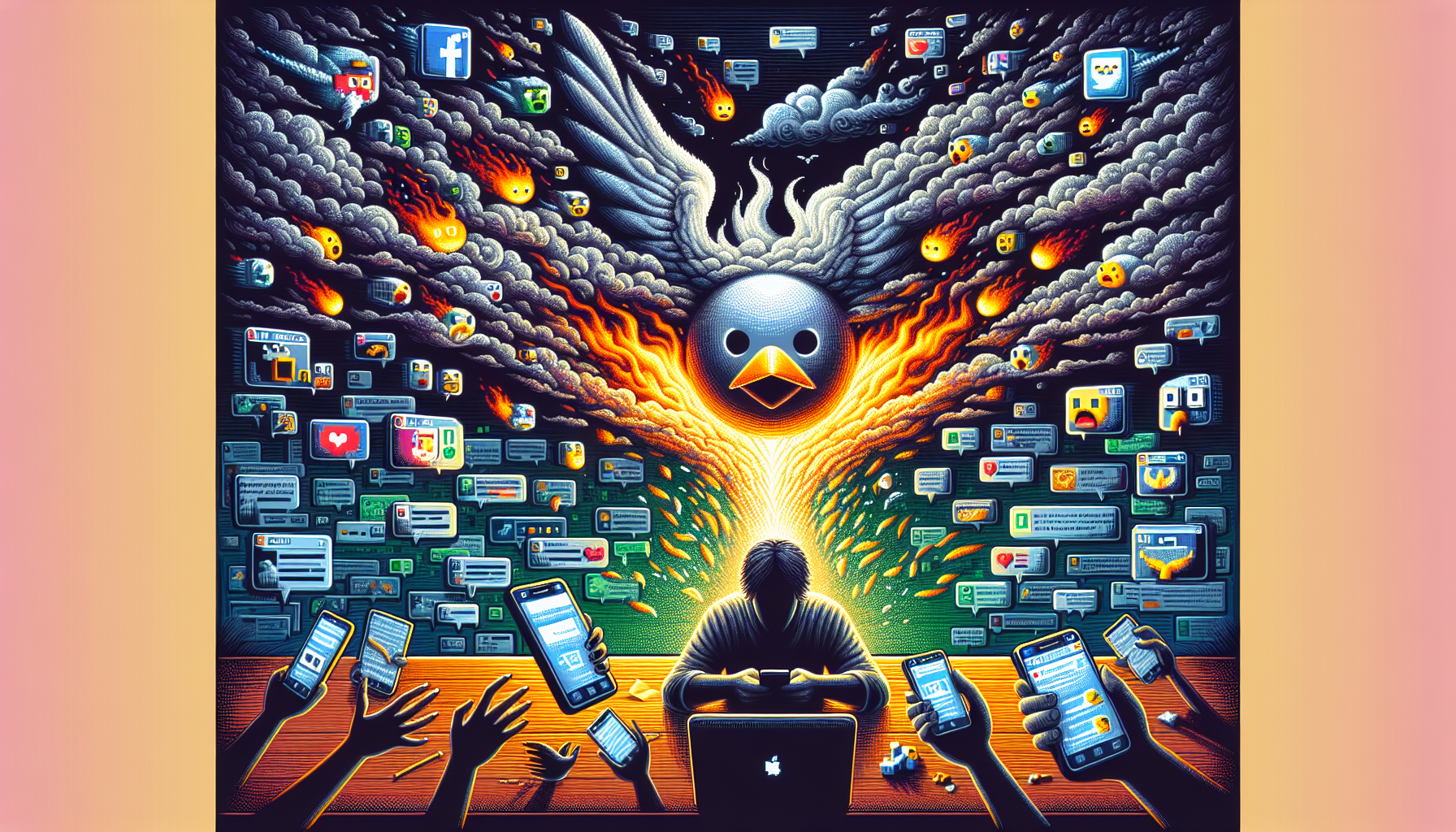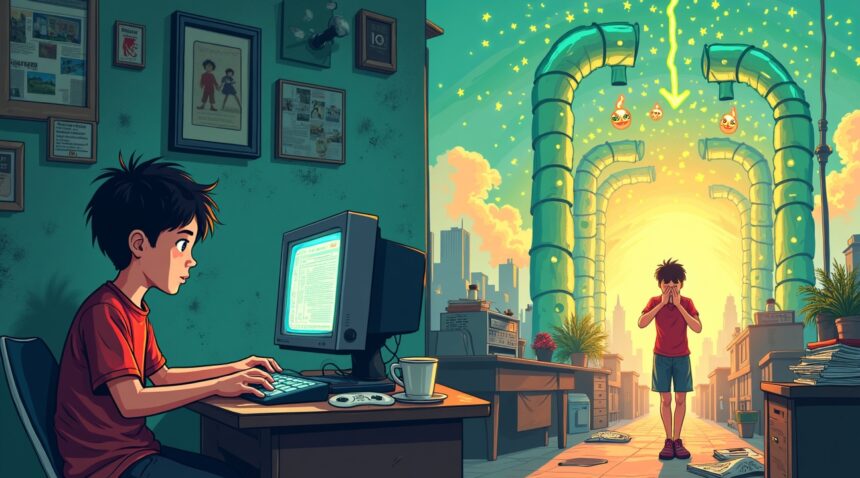Dong Nguyen’s creation of Flappy Bird in 2013 transformed him from an unknown Vietnamese developer into a millionaire earning $50,000 daily, but the game’s viral success ultimately destroyed his peace of mind and forced him to abandon his lucrative creation.
His decision to remove the addictive mobile game at its peak popularity demonstrates how overnight fame can become a psychological prison that money cannot open.
Key Takeaways
- Nguyen developed Flappy Bird in just 2-3 days, drawing inspiration from Super Mario Bros, but the simple game generated massive addiction concerns and player frustration worldwide.
- At its peak, Flappy Bird earned approximately $50,000 per day in advertising revenue while topping app store charts with over 90 million downloads.
- Overwhelming media pressure, plagiarism accusations, and guilt over the game’s addictive nature led Nguyen to suffer severe psychological distress despite his financial success.
- On February 10, 2014, Nguyen shocked the gaming world by removing Flappy Bird from app stores, prioritizing his mental health over millions in potential continued revenue.
- His withdrawal from the spotlight and refusal of lucrative licensing deals established him as a cautionary tale about the hidden costs of viral success in the digital age.
For more information on Dong Nguyen and Flappy Bird’s rise and removal, visit this article from The Guardian.
From Hanoi Coder to Overnight Gaming Sensation
Dong Nguyen’s journey began in Hanoi, Vietnam, where he was born on November 23, 1985. I found his early passion for technology remarkably clear from childhood, particularly after experiencing the Nintendo Entertainment System and its iconic Super Mario Bros. This exposure sparked something profound in the young Vietnamese developer that would later reshape mobile gaming.
Educational Foundation and Early Programming
Nguyen pursued computer science at Hanoi University of Science, building the technical foundation that would support his future success. His programming skills developed rapidly during these formative years. By age 16, he had already demonstrated impressive coding abilities by creating his own chess game, showcasing the determination that would later drive his mobile gaming ventures.
First Steps into Commercial Gaming
Before his global breakthrough, Nguyen achieved his first commercial success with Shuriken Block, a mobile game that established him as a legitimate developer in the gaming space. This early success provided valuable experience in game mechanics and user engagement, skills that would prove essential for his later projects.
His development style drew heavily from classic gaming influences, particularly the simple yet addictive gameplay mechanics found in popular gaming franchises. The Super Mario Bros. influence remained evident throughout his work, inspiring the clean, minimalist approach that would eventually captivate millions of players worldwide.
Nguyen’s programming philosophy centered on creating games that felt familiar yet challenging. His background in Hanoi shaped his perspective on mobile gaming, leading him to focus on straightforward mechanics that could engage players across different cultures and skill levels. This approach proved prescient as mobile gaming expanded globally.
The transition from student programmer to commercial developer wasn’t immediate for Nguyen. His early projects taught him valuable lessons about user interface design and the importance of responsive controls in mobile gaming. These technical insights would later become crucial elements in his most famous creation.
His Vietnamese heritage influenced his game design philosophy, emphasizing patience and precision over flashy graphics or complex storylines. This minimalist approach reflected both his technical capabilities and cultural background, creating a unique style that would soon distinguish his work in the crowded mobile gaming market.
Working from Hanoi, Nguyen had limited access to the major gaming industry networks that dominated Western markets. However, this isolation may have actually benefited his creative process, allowing him to develop games without external pressure or industry expectations. His independent approach would soon prove to be his greatest asset as he prepared to launch a simple bird-based game that would change everything.

When a Simple Game Generated $50,000 a Day
I often think about how the most successful mobile games aren’t always the most complex ones. Dong Nguyen proved this theory when he created Flappy Bird in just 2-3 days during 2013, drawing inspiration from classic Super Mario Bros and simple games like table tennis. The concept couldn’t have been more straightforward – players tap their screen to keep a bird named Faby airborne while navigating through gaps between green pipes that immediately reminded gamers of Mario’s iconic world.
From Obscurity to Viral Sensation
The game’s initial reception was lukewarm at best, with downloads trickling in slowly after its release. Everything changed when Swedish YouTuber Pewdiepie gave Flappy Bird a shoutout, catapulting it into the stratosphere of mobile gaming success. This single mention transformed an unknown title into a viral phenomenon that would define mobile gaming culture.
By January 2014, Flappy Bird had achieved something remarkable – it became the most downloaded free game in the iOS App Store. The numbers were staggering: over 90 million downloads across various platforms, with users becoming obsessively engaged with its deceptively simple yet frustratingly difficult gameplay. I’ve witnessed many gaming successes, but few matched the meteoric rise of this minimalist bird-flying adventure.
The Money Machine Behind the Madness
What made Flappy Bird’s success even more extraordinary was its revenue model. Nguyen earned approximately $50,000 per day in advertising revenue at the game’s peak popularity. Consider that figure for a moment – a game developed in less than a week was generating more daily income than most people earn in a year. The advertising revenue came from simple banner ads and interstitials that appeared between gameplay sessions, proving that sometimes the most effective monetization strategies are also the most straightforward.
The game’s addictive nature kept players coming back repeatedly, driving up ad impressions and revenue. Each failed attempt led to another ad view, creating a cycle that benefited Nguyen financially while simultaneously building user frustration and engagement. This gaming experience demonstrated how mobile games could achieve massive success without requiring extensive development teams or massive budgets.
The simplicity of Faby’s design and the familiar green pipes created an instantly recognizable aesthetic that resonated with millions of players worldwide. Nguyen had accidentally created a cultural phenomenon that would soon become both his greatest achievement and his biggest burden.
https://www.youtube.com/watch?v=lQ0u7xrZzZc
The Dark Side of Viral Fame and Relentless Criticism
Success in the mobile gaming industry often comes with unexpected consequences, and Dong Nguyen’s experience with Flappy Bird exemplifies how viral fame can transform into a personal nightmare. The game’s simple yet brutally difficult mechanics sparked intense debates about its design philosophy and origins.
Plagiarism Accusations and Design Controversy
Critics quickly pointed to striking similarities between Flappy Bird’s visual elements and the iconic Super Mario Bros. franchise. The green pipes, pixel art style, and side-scrolling mechanics bore undeniable resemblances to Nintendo’s beloved series. These comparisons evolved into full-blown plagiarism accusations across gaming forums and social media platforms.
Gaming journalists and industry veterans dissected every aspect of Nguyen’s creation, questioning whether the developer had simply recycled existing assets and concepts. The allegations gained momentum as players and critics alike examined the game’s art direction, finding what they perceived as blatant copying of established gaming elements.
Psychological Toll of Unprecedented Success
Media pressure intensified as Flappy Bird climbed the app store charts, generating substantial revenue for its creator. Nguyen found himself thrust into a spotlight he never sought, facing constant interviews, social media harassment, and public scrutiny of his every move. The relentless attention began taking a severe psychological toll on the previously unknown developer.
Reports emerged of Nguyen struggling with overwhelming anxiety and stress as his creation continued dominating mobile gaming conversations. The developer expressed deep concern about his game’s addictive nature and its impact on users worldwide. Parents complained about children becoming obsessed with the frustrating gameplay, while users shared stories of spending hours attempting to navigate the simple yet maddening obstacle course.
Nguyen’s guilt over creating what many considered an exploitative gaming experience weighed heavily on his conscience. He watched as players became increasingly frustrated yet unable to stop playing, recognizing that his creation had tapped into something darker about human psychology and gaming addiction. The financial success couldn’t compensate for the mounting pressure and criticism he faced daily.
The situation reached a breaking point when Nguyen publicly stated “I cannot take this anymore,” revealing the depth of his distress. The very success that should have celebrated his achievement instead became a source of profound personal torment, demonstrating how viral fame can spiral beyond anyone’s control or expectations.

The Shocking Decision That Stunned the Gaming World
I witnessed one of the most unprecedented moves in mobile gaming history when Dong Nguyen pulled Flappy Bird from both major app stores on February 10, 2014. This decision came at the height of the game’s popularity, when it was generating approximately $50,000 per day in advertising revenue and consistently topping download charts worldwide.
Nguyen’s reasoning behind the abrupt app removal centered on his growing guilt over the game’s addictive qualities. He felt genuinely troubled by stories of players becoming obsessed with achieving higher scores, often at the expense of their daily responsibilities and well-being. The Vietnamese developer expressed concerns that his simple creation had transformed into something he never intended – a source of compulsive behavior rather than casual entertainment.
The gaming community’s reaction was immediate and intense. Within hours of the announcement, social media platforms erupted with disbelief, anger, and desperate pleas for Nguyen to reconsider. Players scrambled to download the game before its complete disappearance, while others who already owned it suddenly found themselves holding what many considered digital gold.
The Feverish Resale Market and Clone Invasion
Following the removal, a bizarre resale market emerged almost overnight. I observed smartphones and tablets with Flappy Bird installed selling for thousands of dollars on eBay and other platforms. Some listings reached astronomical prices, with sellers claiming their devices were worth up to $100,000 simply because they contained the now-unavailable game. While most of these extreme listings were likely publicity stunts, legitimate sales did occur at significantly inflated prices.
This vacuum in the app stores created an immediate opportunity that hundreds of developers couldn’t resist. Clone games began flooding both Apple’s App Store and Google Play within days of the original’s removal. These imitators featured nearly identical gameplay mechanics, similar graphics, and variations on the Flappy Bird name. Titles like:
- Flappy Wings
- Flying Bird
- Clumsy Bird
appeared by the dozens, each attempting to capture the magic of Nguyen’s original creation.
The clone invasion became so overwhelming that both Apple and Google implemented swift measures to combat the trend. Apple began rejecting apps that too closely resembled Flappy Bird, while Google removed many existing clones from their platform. Both companies established stricter guidelines regarding copycat games, fundamentally changing how they approached app approval processes.
Despite the chaos surrounding his decision, Nguyen remained largely silent about the aftermath. He occasionally posted cryptic messages on social media but avoided detailed interviews or explanations about his choice. The developer’s retreat from public attention only intensified the mystery surrounding his motivations and future plans.
In August 2014, Nguyen surprised the gaming community once again by releasing Flappy Birds Family exclusively for Amazon Fire TV. This revised version featured multiplayer capabilities and slightly modified graphics, but maintained the core gameplay that had made the original so addictive. However, the exclusive platform release meant that most mobile users couldn’t access this new iteration.
The Amazon Fire TV version never achieved the widespread popularity of its predecessor, partly due to the limited audience of the platform and partly because the cultural moment had passed. Major tech acquisitions and other industry developments had shifted public attention away from mobile gaming controversies.
Nguyen made it clear that he would distance himself from future clones and reboots of his creation. He expressed frustration with developers who continued to profit from variations of his concept without his permission or involvement. This stance further cemented his reputation as a developer who prioritized personal ethics over financial gain, even when it meant walking away from a potential fortune.
The February 2014 decision continues to be studied as a case example of how sudden success can overwhelm independent developers and the responsibility that comes with creating viral entertainment products.

How Millions in Revenue Became a Personal Prison
The astronomical success of Flappy Bird transformed what should have been a dream come true into Dong Nguyen’s worst nightmare. Despite generating millions in daily revenue, the Vietnamese developer found himself trapped by his own creation’s popularity. Fame and fortune arrived with a devastating price tag that money couldn’t cover.
The Weight of Unexpected Success
Nguyen’s candid confession revealed the true cost of his game’s viral phenomenon. “Flappy Bird ruined my simple life,” he stated in interviews, capturing the profound regret that consumed him after his creation took over the mobile gaming landscape. The developer watched helplessly as his minimalist bird game sparked addiction concerns, academic disruptions, and even instances of rage-induced violence among players worldwide.
His guilt intensified as reports surfaced about the negative impact his game had on users’ daily lives. Students skipped classes, workers became distracted, and some players injured themselves in frustration. The simplicity that made Flappy Bird addictive became the very source of Nguyen’s torment, leading him to withdraw from public appearances and media interviews.
Rejecting the Golden Opportunities
Rather than capitalize on his unexpected windfall, Nguyen made the shocking decision to decline lucrative offers that could have expanded his empire. Publishers approached him with proposals for sequels, merchandising deals, and licensing agreements worth millions more. He refused them all, prioritizing his mental health over potential profits from what the gaming industry considered a goldmine.
The developer’s retreat from the spotlight became complete when he distanced himself from any future Flappy Bird developments. When the trademark was terminated and transferred in 2024, Nguyen had zero involvement in the franchise’s final reboot or subsequent releases. He couldn’t profit from the unofficial copies that flooded app stores, nor did he participate in any legitimate revival attempts.
This withdrawal reflected a broader pattern among creators who struggle with unexpected fame. Similar to how entertainment figures sometimes step back from the limelight, Nguyen chose personal peace over continued financial gain. His decision highlighted the often-overlooked psychological toll that sudden success can inflict on unprepared individuals.
The millions in revenue that once seemed like liberation became chains that bound him to a creation he no longer wanted to own. Nguyen’s story serves as a cautionary tale about the hidden costs of viral success in the digital age.
The Legacy of a Developer Who Walked Away from Fortune
Dong Nguyen’s experience stands as a powerful cautionary tale about the psychological pressure that accompanies overnight success in the digital age. His journey demonstrates how viral fame can transform a simple creation into an overwhelming burden that threatens personal well-being. I find his story particularly compelling because it challenges the standard narrative that equates financial success with personal fulfillment.
Mental Health Over Money: A Revolutionary Choice
Nguyen’s decision to prioritize mental health over financial gain fundamentally challenged conventional notions of success in the gaming industry. While most developers dream of creating the next big hit, Nguyen lived through the reality and discovered that massive success can become a nightmare. His choice to remove Flappy Bird despite earning $50,000 daily sent shockwaves through an industry obsessed with profit maximization.
The developer’s withdrawal highlighted several critical issues that the gaming industry rarely addresses openly:
- The isolation that comes with sudden fame and constant media attention
- The overwhelming pressure to replicate viral success
- The guilt associated with creating potentially addictive content
- The loss of creative freedom when commercial expectations take over
- The invasion of privacy that accompanies public recognition
Sparking Industry-Wide Conversations
The Flappy Bird phenomenon highlighted the addictive nature of mobile gaming and sparked broader conversations about responsible game design. Nguyen’s creation inadvertently demonstrated how simple mechanics could hook players for hours, leading to discussions about ethical development practices. His public struggle with the game’s impact on players forced the industry to examine its responsibility to users.
Nguyen remains largely absent from public life, having chosen simplicity over the chaos that fame brought to his world. His deliberate withdrawal from the spotlight represents a rejection of the celebrity culture that often surrounds successful developers. This decision, while puzzling to many observers, demonstrates remarkable self-awareness and courage.
The Vietnamese developer’s story continues to resonate because it humanizes the often-glamorized startup success narrative. Unlike other tech entrepreneurs who embrace public attention, Nguyen chose authenticity over artificial personas. His legacy serves as a reminder that true success might mean having the wisdom to walk away from fortune when it threatens what matters most.
The Flappy Bird saga ultimately redefined how the gaming industry views both success and failure, proving that sometimes the greatest victory lies in knowing when to stop.
Sources:
YourStory – Untold Story: Flappy Bird’s Viral Success & Shocking Downfall
Famous Birthdays
The Temple News – Flappy Bird to Return After a 10-Year Hiatus: The True Story Behind the World’s Most Viral Mobile Game
Wikipedia – Flappy Bird
CBS News – Flappy Bird Creator Dong Nguyen Finally Speaks


